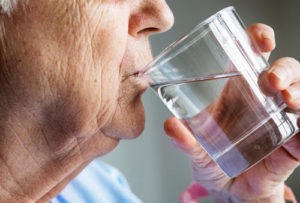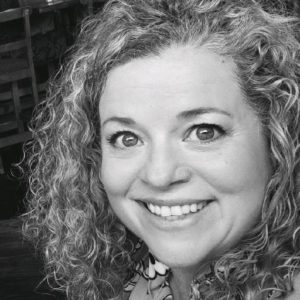Battling Dehydration Among Seniors
How to address this sometimes hidden health threat in your residents.
 According to a 2015 study in the Journal of Gerontology Nursing, between 20% and 30% of older adults are chronically dehydrated. That means nearly a third of all older adults — many of whom may be living in your facility — are not taking in enough fluids.
According to a 2015 study in the Journal of Gerontology Nursing, between 20% and 30% of older adults are chronically dehydrated. That means nearly a third of all older adults — many of whom may be living in your facility — are not taking in enough fluids.
This is about more than just being thirsty; being dehydrated can have significant negative health consequences. For example, people who are dehydrated are hospitalized with stroke at a much higher rate than their well-hydrated peers, and their strokes tend to have more lasting consequences. Chronic dehydration can also exacerbate or contribute to the development of a range of diseases and conditions.
Causes of Dehydration
The causes of dehydration are complex and wide ranging. They include:

Kate Weiler, sports nutritionist and co-founder of Drink Simple
- Changes in body composition. “Seniors are at greater risk for dehydration because older adults have less water in their bodies than younger adults due to body composition changes as we age,” says Kate Weiler, a sports nutritionist and co-founder of Drink Simple, which makes a line of plant-based beverages.
- Loss of a sense of thirst. In older adults, the sense of feeing thirsty and the drive to drink is often weaker than in younger people, leading to dehydration.
- Type 2 diabetes. Undiagnosed or poorly controlled diabetes can cause increased urination, which can lead to dehydration.
- Decreased mobility. If a resident isn’t very mobile, that can make multiple trips to the sink for a refill, or to the bathroom, less appealing.
- Loss of cognitive abilities. Seniors with age-related cognitive decline or dementia may not remember to drink as frequently as they should or be less able to consume water regularly.
- Side effects of some medications, such as diuretics used to treat high blood pressure, can lead to loss of water and hydration. Antihistamines and laxatives can also have a diuretic effect.
- Urinary incontinence. Anxiety about accidents can lead some seniors to drink less in hopes of curbing the problem before it starts.
Symptoms of Dehydration
Symptoms of dehydration may include:
- Dry mouth.
- Little or no urination.
- Dark-colored urine.
- Dry skin that doesn’t rebound quickly when pinched.
- Dizziness, confusion, and irritability.
- Low blood pressure.
- Muscle cramps.
- Increased rate of breathing and heart rate.
- Weak pulse.
- Cold hands and feet.
Many of these symptoms are nonspecific and may be misattributed to aging, other medical conditions, or medications, so it’s not always obvious that someone is dehydrated. But the consequences can be more severe than just feeling thirsty. “Chronic dehydration can lead to kidney problems, headaches, constant fatigue, muscle weakness and hypertension,” Weiler explains.
The consequences of dehydration are clear, but staying well hydrated can have specific health benefits, Weiler says. “Staying hydrated keeps organs functioning well, keeps joints lubricated, can prevent infections, regulates body temperature, increases energy levels and improves mood, cognition, and sleep quality.”
Encouraging Proper Hydration
Clearly, an important aspect of making sure your residents stay healthy is to ensure they’re drinking enough water or other low-sugar, hydrating fluids. To help keep your residents well hydrated, consider these tips:
- Make sure that water is always available. Providing a pitcher of water in each room or giving each resident a refillable water bottle may encourage them to drink more often. “Try adding cucumber or citrus slices every once in a while to create ‘spa water’ that can be more appealing for people that have trouble drinking enough water,” Weiler suggests.
- Provide water with every meal. In communal dining settings, make sure pitchers of water are on every table. For in-room dining, a glass or bottle of water should be provided on each tray delivered.
- Remind residents to drink up. Have your staff remind residents to drink more water throughout the day. Especially because some seniors may not realize that they are thirsty because of a reduced sense of thirst, a verbal reminder can help them stay on track. You can also encourage your staff members to refill each resident’s reusable water bottle a couple times a day; sometimes the easy availability of a fresh glass of water is all it takes.
- Redouble your efforts. When the temperatures climb or seniors exercise, they’re more likely to sweat, and that can lead to dehydration. Therefore, after every exercise session and in the summer, make an even bigger effort to ensure they’re getting enough to drink.
Catering to Water Non-Lovers
But what about people who say they don’t like the taste of water or don’t enjoy guzzling down an 8-ounce glass of water eight times a day? Weiler offers these tips:
- Add a splash of fruit juice. Although fruit juices can be quite high in sugar, adding a little bit of juice to a glass of water may make it far more palatable to folks who don’t like plain water.
- Drink herbal teas. The world of herbal teas is vast, and there are so many delicious ways to enjoy a warm mug, from fruit-flavored or ginger teas to chamomile, peppermint, hibiscus, and rooibos teas. Any herbal tea can be a wonderful way to add both flavor and hydration — just watch out for caffeine. Weiler notes that caffeine acts as a diuretic and can actually have a dehydrating effect.
- Eat water-dense foods. Many fruits and vegetables are predominately water. Take cucumbers, for example. They’re made up of nearly 97% water and make a delicious addition to salads, sandwiches, and a wide range of other foods. Similarly, celery, tomatoes, lettuce, zucchini, spinach, strawberries, and watermelon are all more than 85% water and can be delicious additions to any diet while providing lots of other necessary vitamins, minerals, and fiber.
- Add plant-based waters. Weiler’s company makes maple water — a water drawn directly from maple trees. It’s tasty, contains electrolytes, and has just a quarter of the sugar of fruit juice. Other plant-based waters include coconut water, watermelon water, cactus water, aloe vera water, artichoke water, and birch water. Each has its own flavor profile and specific health benefits that can suit a wide range of health needs and taste preferences.
Keep An Eye On Your Own Glass, Too
Lastly, Weiler recommends you ensure you’re well hydrated, too. Being as busy as most owners and operators of senior living facilities often are, it can sometimes be challenging to stay hydrated and well-nourished yourself. She recommends making a habit of having a glass of water every day before you do anything else.
“When we wake up in the morning, most of us start the day off dehydrated. A great way to jump start your day is to drink a glass of water or your hydration preference — I always drink a room temperature bottle of maple water — before you do anything, including reaching for a cup of coffee. It can improve your energy and mood and decrease fatigue to start the day off right.”

Elaine K. Howley is a freelance journalist for various publications. An award-winning writer specializing in health, fitness, sports and history, her work has appeared in numerous print and online publications, including U.S. News, AARP.org, espnW, SWIMMER magazine and Atlas Obscura. She’s also a world-record holding marathon swimmer with a passion for animals and beer. Contact her via her website: elainekhowley.com.
Related Articles
Topics: Alzheimer's/Dementia , Featured Articles , Resident Care











